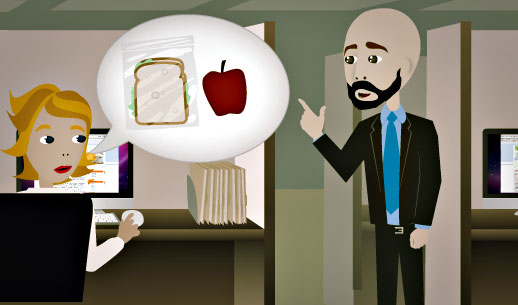“No, I packed my lunch today. Thanks, though.”
It's lunch time at work. A coworker offers to pick up some food for you. You say this because you brought lunch from home.
No, I packed my lunch today. Thanks, though.
Want Video and Sound? Follow us on YouTube

pack (one's) lunch
If you bring lunch to work or school from home, it's called "packing" your lunch. Technically, "packing" a lunch means wrapping it and putting it in a bag or box:
My mom used to pack my lunch for me every day.
But even if someone else actually made the food for you and put it in your bag or lunch box, it's still OK to say that you "packed a lunch":
I packed a lunch today, so I'm just going to eat at my desk.
Thanks, though.
When someone offers you something and you refuse, it's polite to say "Thank you" to them for making the offer:
A: Do you want to come out with us?
B: No, I think I'll stay in tonight. Thanks for offering, though.
You use "though" at the end of a sentence to mean something similar to "but" or "however". But unlike "but" and "however", "though" can come at the end of a sentence:
I didn't really agree with the point she was trying to make. She did tell some interesting anecdotes, though.
